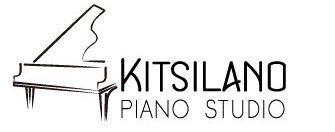Starting the piano without a piano teacher, unless your name is Mozart, Beethoven, or Bach, will not be a cakewalk!
When you are alone, method and organization are essential. You have to prepare your piano sessions, play, and watch yourself play at the same time in order to be able to correct yourself.
It is not given to everyone, preparation for the session and observation normally part of the key skills of private (or not) piano teachers. Without a beginner piano lesson run by a teacher, you may not learn how to play the right way.
Certain faults and blocking points may then appear:
- The finger related errors are very common and can be fixed by a teacher. Being an autodidact, it is enough simply to be very rigorous in the musical score,
- Not understanding the rhythm: it is better to invest in a metronome,
- Poor positioning of the arms or wrists: Where a teacher can correct this problem, it will be very difficult to correct it while practicing alone. You can also film yourself to check your posture.
As you will have understood, you can learn the piano on your own but you will have to be multi-tasking to correct your mistakes at the same time as learning the piano easily.
Piano schools can help you in the beginning.
The difficulties of self-taught learning
Learning to read a score without music theory lessons is already complicated but the autodidact will ask himself various questions.
What to start with?
For starters, it is important to choose the correct piano method. Ask a music store for advice on which method is right for you.
Do not neglect either the basics of music theory that you can find in a booklet and also buy a book of easy scores.
Begin with the text and then, move onto the video. Head to an online piano lesson to learn how to play in a more fun way.
Several things are essential in the beginning to learn piano online:
- Untie the fingers,
- Work left hand, right hand,
- Work the right hand then left-hand scales, then both hands simultaneously,
- Work on several octaves,
- Work on some chords
- At the same time: learn affordable songs. Give preference to film music rather than the great pieces of classical music!
Evaluate the difficulty of a score
As a beginner, if learning music theory can be complicated, knowing if a score is too difficult for your level can be too.
Here are some tips for knowing which partitions to start with:
- The length of the song: playing rather short songs and in different musical styles,
- Finger spreads and hand movements: Don’t play the notes that are too far apart, as you have just started to begin playing a piano, so chances are, your fingers won’t have enough flexibility.
- The rhythmic: choose a simple binary rhythm symbolized on the score by C, 4/4, 3/4 or 2/4,
- The tempo: avoid too fast tempos at the beginning, marked on the score by many sixteenth notes or sixteenth notes,
- The accompaniment and independence of both hands: choose pieces with light accompaniment, that is to say, few notes made with the left hand.
How to continue to progress?
When you reach a certain level, you’ll feel like you are stagnating and will not know what to do to continue to progress quickly. It will then be beneficial to take some lessons with a private tutor. He will be able to give you new practical exercises besides correcting certain points that you find problematic. He will take stock of your progress to reassure you and give you other avenues for reflection. It’s a great way to learn to play nuances, expressions, and finger strengthening.
Breathe new life into your learning for renewed motivation and commitment!
